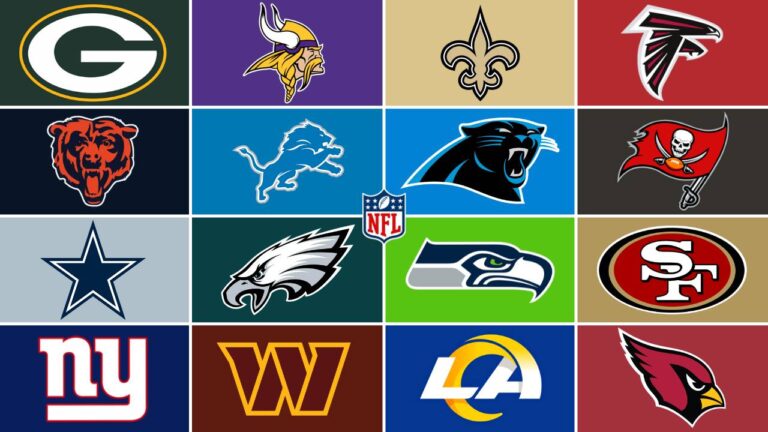
While sports education is important for young students, the skills learned can also be carried with them as they grow and turn into an exciting career in sports medicine. If you are someone who always enjoyed physical education as well as health class, then a career in sports medicine might be a good fit.
In addition to bringing together a passion for sports and health, working as a sports medicine professional can have numerous other benefits. However, that’s not to say it’s not without its challenges. Like any career in healthcare, sports medicine requires hard work and dedication.
If you are curious about working in the field of sports medicine, this guide can offer some insight to help you determine if it’s the right path for you.
What Do Sports Medicine Doctors Do?
Sports medicine doctors treat a wide range of conditions, using various healing techniques to help athletes recover from sports injuries. However, while a career in sports medicine will likely result in working primarily with athletes, you can also have non-athlete patients who sustain injuries from leading an active lifestyle or participating in sports activities.
As a whole, sports medicine is a multi-faceted career as it can include a number of responsibilities depending on the specific job. These can include:
- Administering medical attention to athletes during games, practice, or training.
- Diagnosing and treating injuries that affect the musculoskeletal system.
- Advising athletes on how to avoid injuries.
- Evaluating injured athletes to provide a treatment plan and determining their readiness for being active again.
- Overseeing an athlete’s rehabilitation.
- Performing surgeries to repair serious sports injuries.
- Providing dietary advice to complement an athlete’s active lifestyle and needs.
- Working alongside other sports medicine professionals, coaches, and trainers to monitor an athlete’s recovery.
Not only do sports medicine physicians have a range of duties, but they can also work in a variety of different places. Some work in rehab centers, hospitals, professional sports facilities, colleges, training facilities, and various medical clinics.
What Are Common Sports Medicine Jobs?
There are many different career paths you can take if you decide you want to work in sports medicine, some of the most common include:
1. Primary Care
A primary care sports physician will provide general care to athletes and those who are injured during sports and recreational activities. As a primary care sports doctor, you will need in-depth knowledge of sports injuries and athletic conditioning to adequately diagnose and treat a wide range of sports-related injuries.
2. Sports Cardiologist
Sports cardiologists are specialists who work with athletes who have cardiovascular conditions. While this might seem very niche, it is actually becoming a popular career choice as cardiac arrest among young athletes has been increasing in recent years. As a sports cardiologist, it will be important for you to thoroughly understand all potential heart conditions that can affect an athlete, including congenital heart defects, blunt force trauma to the chest, and hypertrophic cardiomyopathy.
3. Orthopedic Surgeon
While an orthopedic surgeon doesn’t have to specialize in treating athletes, these kinds of surgeons do play an important role in sports medicine. As an orthopedic surgeon, your role would be to primarily treat athletes who require surgery for their injuries, such as those affecting the legs, hands, arms, or hips.
4. Athletic Trainer
Athletic trainers tend to have the most contact with athletes as they are the ones who are most present during games, practices, and training. Trainers typically oversee an athlete’s entire health and wellness program. They monitor athletes closely and intervene when needed to help treat and prevent injuries.
5. Sports Chiropractor
Sports chiropractors provide holistic care to athletes, helping them maintain an overall healthy lifestyle with chiropractic care. This can include providing pain management, rehabilitation, stress reduction, exercise routines, improving mobility and flexibility, and even providing nutritional advice.
The Rewards and Challenges of Working in Sports Medicine
Working in sports medicine can be a very rewarding career. You get to potentially work with high performers and feel like you are a part of the team. You can make a difference in the lives of athletes who are working hard to make their goals and dreams come true. It provides you with a platform to innovate and discover newer and better treatments for sports injuries.
On the flip side, working in sports medicine can also be a challenging career. If you work with professional athletes, you might always be on the go and much of your life will be dictated by the team you are working with. You will likely have to work long hours and be on call in case one of your athletes sustains an injury that needs immediate attention. Working as a sports medicine physician also comes with a lot of pressure to ensure your client’s well-being and ability to get back in the game.
That said, if you enjoy a fast-paced environment where you will be working hands-on with athletes and are a part of the action, then you will likely enjoy a career in this field.
How to Pursue a Career in Sports Medicine
Becoming a sports medicine physician requires extensive training and education. If you want to work in this field, these are the steps you will need to take:
- Receive a bachelor’s degree, preferably in a scientific field, such as biology or chemistry.
- Attend medical school with a focus on osteopathic medicine and preventative care.
- Complete a residency in your chosen field, such as internal medicine, rehabilitation, or orthopedic surgery.
- Pass the U.S. Medical Licensing Exam.
- Earn a Board certification in a residency specialty and/or a Certificate of Added Qualification (CAQ) in Sports Medicine.
Once you complete all of these steps, you will still need to start applying to jobs if your residency has not already led you to one. While all of the medical schooling and training is challenging, landing your dream job can also be just as hard, especially if you are looking for a position with a well-known sports team or at a renowned sports medicine facility.
When applying for a first-time job or even an internship in sports medicine, it’s important that you put your best foot forward. This starts with creating a compelling resume that is clean, well-organized, and highlights your best skills. You’ll also want to craft a professional cover letter that introduces who you are, your skills, and a little bit about your story and why you’re a good fit for the role you’re pursuing. These days, it’s also incredibly beneficial to have an online profile such as LinkedIn, where employers can easily access and view all of your credentials and experience.
Is Sports Medicine Right For You?
If you are passionate about sports and helping people live their best, healthiest lives, then a career in sports medicine is worth considering. While this field is demanding, the challenges you may face can be worth the rewards if you work well under pressure and enjoy fast-paced, exciting environments.
Author Profile
Latest entries
 GolfDecember 13, 2024Game On: How to Optimize Your Performance on the Golf Course
GolfDecember 13, 2024Game On: How to Optimize Your Performance on the Golf Course BusinessNovember 23, 2024How To Get Your Personal Trainer Business Off The Ground
BusinessNovember 23, 2024How To Get Your Personal Trainer Business Off The Ground FitnessOctober 25, 2024The Athlete’s Diet: How Nutrition Fuels Peak Performance
FitnessOctober 25, 2024The Athlete’s Diet: How Nutrition Fuels Peak Performance EducationOctober 1, 2024The Role of Leadership in Team Building: How Coaches Inspire Collective Greatness
EducationOctober 1, 2024The Role of Leadership in Team Building: How Coaches Inspire Collective Greatness







